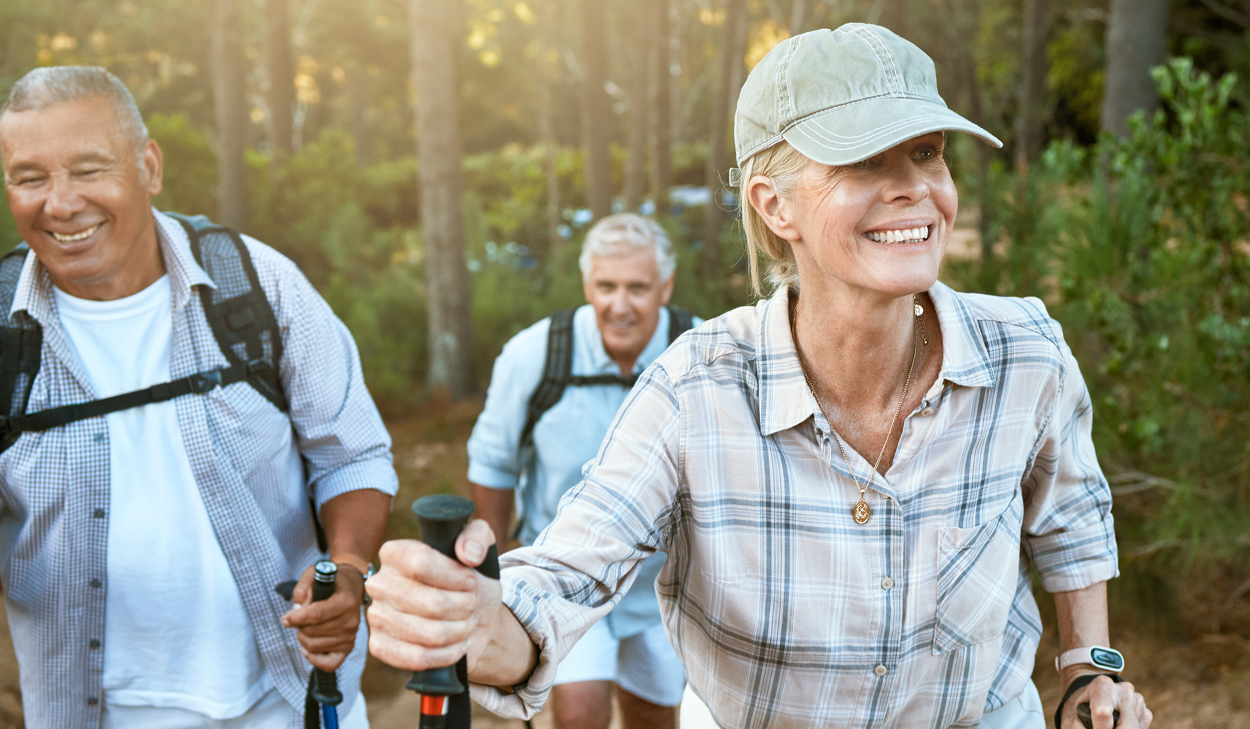Strong Bones for Life: How Women Can Prevent Osteoporosis

According to the Bone Health & Osteoporosis Foundation, one of every two women in the United States over age 50 will experience a bone fracture caused by osteoporosis. This condition, affecting roughly 54 million Americans, occurs when bones lose density and strength, becoming thinner, weaker, and more fragile.
Women are especially at risk because they naturally have lower bone density than men, and estrogen levels drop after menopause contributing to bone loss. In fact, women can lose up to 20% of their bone density in just five to seven years following menopause, which can lead to fractures that cause pain, disability, and difficulty with everyday activities. The encouraging news is that you can take steps now to protect your bones, helping you stay strong, active, and independent well into your 60s and beyond.
“I encourage women to focus on three main areas,” says BJC Medical Group orthopedic surgeon Christine Piper, MD. “Good nutrition with enough calcium and Vitamin D, regular weight-bearing exercise like walking or strength training, and avoiding habits that weaken bones, such as smoking or heavy alcohol use. These steps build a strong foundation for bone health."
Protect your bones by doing the following:
- Get enough calcium. Women over 50 should aim for at least 1,200 mg per day through food or supplements. For women under the age of 50, 1,000 mg is recommended.
- Stay active. Weight-bearing exercises, such as walking, dancing, jogging, and strength training help build and maintain bone strength.
- Add lean protein. Higher protein intake is linked to stronger bones and slower bone loss.
- Boost Vitamin D. Vitamin D helps your body absorb calcium. Sunlight is a natural source, but you can also get Vitamin D from oily fish, eggs, mushrooms, and fortified foods.
- Maintain a healthy weight. Being underweight increases your risk of bone loss and fractures.
- Avoid smoking and limit alcohol. Both weaken bones and increase fracture risk.
- Get screened. A bone density test is recommended for women at age 65, or sooner if you have risk factors such as early menopause, family history, or previous fractures.
Caring for your bones now means protecting your independence, mobility, and quality of life in the years ahead. Taking small daily steps, such as walking, choosing calcium-rich foods, or getting a bone density check, can make a big difference in keeping your bones strong for life.
Recent News
Resources
Comfort and Joy: 7 Healthy Holiday Party Tips for a Safe Celebration
Resources
Get Moving Again: Advanced Nerve Injury Care at Barnes-Jewish Hospital
Resources
Shoulder Surgery: More Options, Longer-Lasting Results
Resources
What are seed oils and how do they impact health?
Resources
Primary, Virtual, Convenient, or Emergency Care? Know Where to Go (and When)
Resources